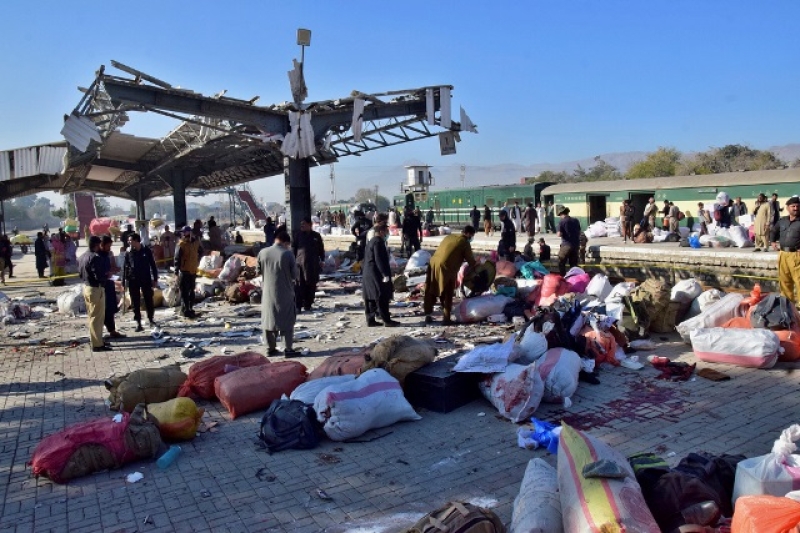- Body of Osman Hadi Returns to Dhaka From Singapore Late |
- Fakhrul condemns attacks on media, calls for unity, justice |
- 2 cops among 4 hurt in clash outside Indian Assit H.C. in Ctg |
- Inqilab Moncho urges people to avoid violence |
- Hadi’s death: Prothom Alo, Daily Star offices set afire |
Death toll rises to 17 in a bombing at a rail station in Pakistan

Bombing at a Quetta railway station
QUETTA, Pakistan, Nov 9 (AP/UNB) — The death toll from a powerful bombing at a Quetta rail station in southwestern Pakistan on Saturday rose to 17, officials said. The attack also left 30 others wounded, some critically.
A bomb exploded when passengers were waiting for a train to travel to the garrison city of Rawalpindi from Quetta, the capital of the restive Balochistan province, said Mohammad Baloch, a senior police officer.
A separatist group, the Balochistan Liberation Army (BLA) claimed the attack in a statement, saying a suicide bomber targeted troops present at the railway station. Police said they are investigating the claim.
TV footage showed the platform littered with passengers’ luggage.
Ayesha Faiz, a Quetta police official, said some of the critically wounded passengers died at a hospital, raising the deaths.
Earlier, Shahid Rind, a government spokesperson, said the death toll from the attack was likely to rise as some of the wounded passengers were listed in critical condition.
Local media reported that at least 20 people died in the bombing.
The oil- and mineral-rich Balochistan is Pakistan’s largest but also least populated province. It is also a hub for the country’s ethnic Baloch minority whose members say they face discrimination and exploitation by the central government. Along with separatist groups, Islamic militants also operate in the province.
BLA often targets security forces and foreigners, especially Chinese nationals who are in Pakistan as part of Beijing’s multibillion-dollar Belt and Road Initiative, which is building major infrastructure projects.

